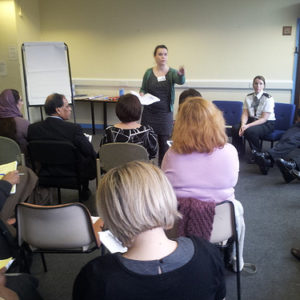AIB Research Centre on Inclusive and Equitable Cultures in partnership with TU Dublin is hosting ‘COVID-19 pandemic in Ireland: lockdown policies, employment, and care’ , a presentation from Dr Alicja Bobek on the impact of COVID-19 lockdown policies on employment and care from a gender+ perspective.
COVID-19 pandemic in Ireland: lockdown policies, employment, and care
Register here.
This paper will explore the impact of COVID-19 policies on the relationship between paid employment and care work in Ireland, with a particular focus on gender and intersectionality. As we argue, these two perspectives were often missing from policies aimed at combating the public health crisis, as well as from the measures implemented to mitigate the consequences of public health policies. As this paper will discuss, the lack of gender+ perspective in these policies can be explained by the overall approach towards gender roles and care, which pre-date the pandemic.
To date, there has been ample international evidence suggesting that the COVID-19 had a profound impact on women’s place in the labour market on both, short- and long-term basis. (e.g., Matthewman and Huppatz, 2020). In particular, it has been suggested that the prolonged closures of schools and childcare facilities has been an important factor affecting women’s paid employment (Dunatchik et al., 2021; Profeta, 2020) as women continued to be more involved in the unpaid work at home (e.g., Chung et al., 2021). Data utilised for the purpose of this paper suggests that similar trends occurred in Ireland. However, as we argue, government policies rarely addressed unpaid care provided by family members, and instead focused on easing the financial burden on the economy, businesses, and the labour market.
This paper is based on data collected as part of the RESISTIRÉ (Responding to outbreaks through co-creative inclusive equality strategies and collaboration) research project. The RESISTIRÉ is an interdisciplinary project investigating how the COVID-19 pandemic has affected equality in 31 European countries, including Ireland. The project involves a ten-partner European consortium and network of researchers in the EU, the UK, Serbia, Iceland and Turkey. The project meets its objectives in three cycles, each consisting of four steps combining quantitative and qualitative research with co-creation activities. In this paper we will utilise the data collected in Ireland during the first cycle of the study, which included the extensive mapping of policy and societal responses to COVID-19, the analysis of secondary survey data, workshop with civil society representatives, expert interviews, and individual narratives.












Comments